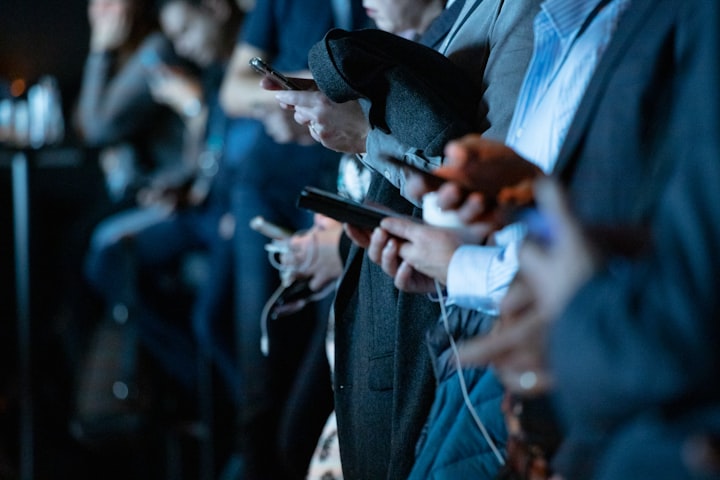The Paradox of Social Connectedness
Engaging with social media can actually make you feel lonely and isolated causing mental health issues such as anxiety and depression. On the flip side, lacking strong social connections can pose a serious risk to your mental and emotional health.

The adolescents around the world today are growing up in an increasingly digitalized society where the use of mobile and computer screens is intensive and pervasive.
Studies have been conducted in the space of how social media use affects social connectedness in terms of three elements of adolescent development: A sense of belonging, Psychosocial wellbeing, and Identity development and processes. This issue is not only pertinent to teenagers but the youth as well. As the oldest millennials turn 40 this year while the oldest Gen-Zs turn 25 combined they make up the largest percentage of population and workforce. Whether this rising use of social media leads to positive or negative outcomes warrants greater understanding. Mixed findings are reported in this space of research regarding the role that social media plays in fostering social connectedness, which insinuates that young people may experience both positive and negative psychological outcomes.
While it would be erroneous to assume virtual interaction on social media would have the same psychological benefits as face-to-face communication, there are still many positives to social connectedness. The fact that social media enables you to stay connected and have that support irrespective of the time or place can ease stress, anxiety, and depression. It also empowers you to a certain extent to boost your self-esteem, provide comfort and solace, gives you joy even if it is momentary, prevents loneliness and this might even add years to your life. On the flip side, lacking strong social connections can pose a serious risk to your mental and emotional health.
Especially during the covid-19 pandemic, the world is grappling against. The health crisis the world is forced to face today is clearly affecting people not only physically but also psychologically. Just the thought of being amidst a global pandemic causes people to undergo excessive stress and anxiety due to various reasons. After the SARS outbreak in 2003, both healthcare workers and people who were self-quarantined exhibited symptoms of post-traumatic stress disorder (PTSD). The Covid-19 pandemic could have a similar effect, according to experts. Even if you aren’t clinically diagnosed with PTSD, you may have a strong emotional reaction to the trauma of Covid-19 that can last long after an incident.
According to researchers from Michigan State University in the US, communication technologies and social media platforms make it easier to maintain relationships and access health information. Social media has become the primary source of information for most of the youth out there. As social media provides a wide range of information and exposure to the world, this information can some times be misleading. this brings us to acknowledge the fact that social media may also have a negative impact on people.
Benjamin Miller, a clinical psychologist and chief strategy officer at the Well Being Trust says, “It’s a mixed bag and not as straightforward as we would hope to some it is a lifeline of support. For others, it really added to their distress. It is not necessarily helping, but it’s not hurting, either.”
Despite this fact many adults whether parents or educators focus mostly on the negatives of social media in the lives of teenagers. Nonetheless, this is an understandable response because these grown-ups are the ones who have to deal with the fallout when adolescents make mistakes online. Many incidents like cyberbullying, online dating violence, sexting cases and many similar occurrences that social media has facilitated in a way.
However, most individuals use social media responsibly and productively. A substantial percentage of adolescents with internet access are regularly using online social media The increased uptake of social media applications has provided more opportunities for young people to connect, communicate, and interact with each other. That includes staying informed and informing others.

Social media has become an outlet for grief, stress, anxiety etc. It is also a place where people find comic relief, opportunities to attend virtual events, meet new people and network and a lot more. It is a place where they find hope, where they are not alone. A place to form a community of their own. This combination of empathy and tech-know-how is the factor that makes younger generations unique.
This brings us to the concept of “ the paradox of social connectedness”. On one hand, social media enables people in a sense that the ease in which individuals may form and create online groups and communities is much more convenient, but on the other, they can create a source of alienation and ostracism. Ironically this very technology that is designed to bring people closer and providing them with a sense of belonging and connectedness is penalized for the fact that spending too much time engaging with social media can actually make you feel lonely and isolated causing mental health problems such as anxiety and depression.
However, despite apprehensiveness that digital technology may worsen stress and cause depression, most teens and young adults surveyed during the research conducted by Hopelab said it did not make a difference. Moreover, after analyzing data from more than 13,000 participants the team found that social media users are 63 percent less likely to experience serious psychological distress, including major depression or serious anxiety. The researchers found that someone who uses a social networking site is 1.63 times more likely to avoid serious psychological distress.
Human beings are social creatures. We need the companionship of others to thrive in life. At times like these where we are confined to the enclosures of our homes, the strength of our relationships and connections has a huge impact on our mental health and life.
About the Creator
Alison Cloveheart
Hey there!
I'm an aspiring writer, who wants to be better connected with all the readers out there and for some much needed feedback.
^_^






Comments
There are no comments for this story
Be the first to respond and start the conversation.